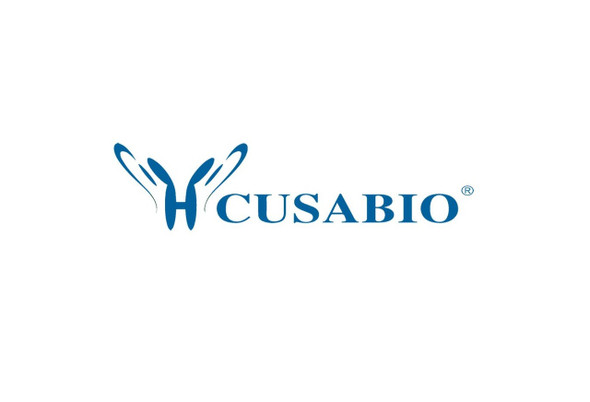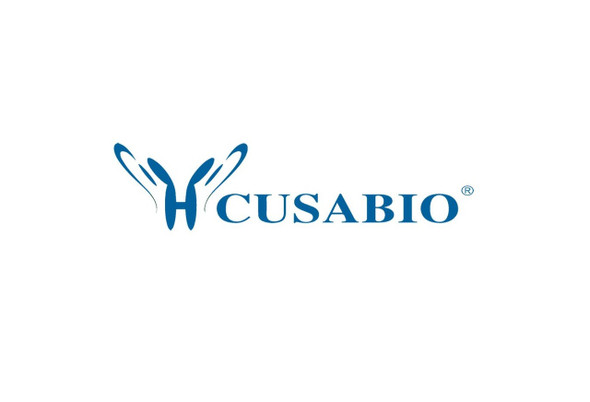Cusabio Human Recombinants
Recombinant Human Protein mono-ADP-ribosyltransferase PARP9 (PARP9), partial | CSB-BP815575HU
- SKU:
- CSB-BP815575HU
- Availability:
- 3 - 7 Working Days
Description
Recombinant Human Protein mono-ADP-ribosyltransferase PARP9 (PARP9), partial | CSB-BP815575HU | Cusabio
Alternative Name(s): ADP-ribosyltransferase diphtheria toxin-like 9
Gene Names: PARP9
Research Areas: Cancer
Organism: Homo sapiens (Human)
AA Sequence: IQQQKTQDEMKENIIFLKCPVPPTQELLDQKKQFEKCGLQVLKVEKIDNEVLMAAFQRKKKMMEEKLHRQPVSHRLFQQVPYQFCNVVCRVGFQRMYSTPCDPKYGAGIYFTKNLKNLAEKAKKISAADKLIYVFEAEVLTGFFCQGHPLNIVPPPLSPGAIDGHDSVVDNVSSPETFVIFSGMQAIPQYLWTCTQEYVQSQDYSSGPMRPFAQHPWRGFASGSPVD
Source: Baculovirus
Tag Info: N-terminal 10xHis-tagged and C-terminal Myc-tagged
Expression Region: 628-854aa
Sequence Info: Partial
MW: 29.8 kDa
Purity: Greater than 85% as determined by SDS-PAGE.
Relevance: ADP-ribosyltransferase which, in association with E3 ligase DTX3L, plays a role in DNA damage repair and in immune responses including interferon-mediated antiviral defenses (PubMed:16809771, PubMed:23230272, PubMed:26479788, PubMed:27796300). Within the complex, enhances DTX3L E3 ligase activity which is further enhanced by PARP9 binding to poly(ADP-ribose) (PubMed:28525742). In association with DTX3L and in presence of E1 and E2 enzymes, mediates NAD+-dependent mono-ADP-ribosylation of ubiquitin which prevents ubiquitin conjugation to substrates such as histones (PubMed:28525742). During DNA repair, PARP1 recruits PARP9/BAL1-DTX3L complex to DNA damage sites via PARP9 binding to ribosylated PARP1 (PubMed:23230272). Subsequent PARP1-dependent PARP9/BAL1-DTX3L-mediated ubiquitination promotes the rapid and specific recruitment of 53BP1/TP53BP1, UIMC1/RAP80, and BRCA1 to DNA damage sites (PubMed:23230272, PubMed:28525742). In response to DNA damage, PARP9-DTX3L complex is required for efficient non-homologous end joining (NHEJ); the complex function is negatively modulated by PARP9 activity (PubMed:28525742). Dispensable for B-cell receptor (BCR) assembly through V(D)J recombination and class switch recombination (CSR) (By similarity). In macrophages, positively regulates pro-inflammatory cytokines production in response to IFNG stimulation by suppressing PARP14-mediated STAT1 ADP-ribosylation and thus promoting STAT1 phosphorylation (PubMed:27796300). Also suppresses PARP14-mediated STAT6 ADP-ribosylation (PubMed:27796300).
Reference: "PARP9-DTX3L ubiquitin ligase targets host histone H2BJ and viral 3C protease to enhance interferon signaling and control viral infection." Zhang Y., Mao D., Roswit W.T., Jin X., Patel A.C., Patel D.A., Agapov E., Wang Z., Tidwell R.M., Atkinson J.J., Huang G., McCarthy R., Yu J., Yun N.E., Paessler S., Lawson T.G., Omattage N.S., Brett T.J., Holtzman M.J. Nat. Immunol. 16:1215-1227(2015)
Storage: The shelf life is related to many factors, storage state, buffer ingredients, storage temperature and the stability of the protein itself. Generally, the shelf life of liquid form is 6 months at -20?/-80?. The shelf life of lyophilized form is 12 months at -20?/-80?.
Notes: Repeated freezing and thawing is not recommended. Store working aliquots at 4? for up to one week.
Function:
Involvement in disease:
Subcellular Location:
Protein Families:
Tissue Specificity:
Paythway:
Form: Liquid or Lyophilized powder
Buffer: If the delivery form is liquid, the default storage buffer is Tris/PBS-based buffer, 5%-50% glycerol. If the delivery form is lyophilized powder, the buffer before lyophilization is Tris/PBS-based buffer, 6% Trehalose, pH 8.0.
Reconstitution: We recommend that this vial be briefly centrifuged prior to opening to bring the contents to the bottom. Please reconstitute protein in deionized sterile water to a concentration of 0.1-1.0 mg/mL.We recommend to add 5-50% of glycerol (final concentration) and aliquot for long-term storage at -20?/-80?. Our default final concentration of glycerol is 50%. Customers could use it as reference.
Uniprot ID: Q8IXQ6
HGNC Database Link: N/A
UniGene Database Link: N/A
KEGG Database Link: N/A
STRING Database Link: N/A
OMIM Database Link: N/A






![Recombinant Human Poly [ADP-ribose] polymerase 9 (PARP9), partial Recombinant Human Poly [ADP-ribose] polymerase 9 (PARP9), partial](https://cdn11.bigcommerce.com/s-rvypo0hmzw/images/stencil/590x590/products/5538/10332/cusabio__81676.1638370075__39787.1638526008.jpg?c=1)


